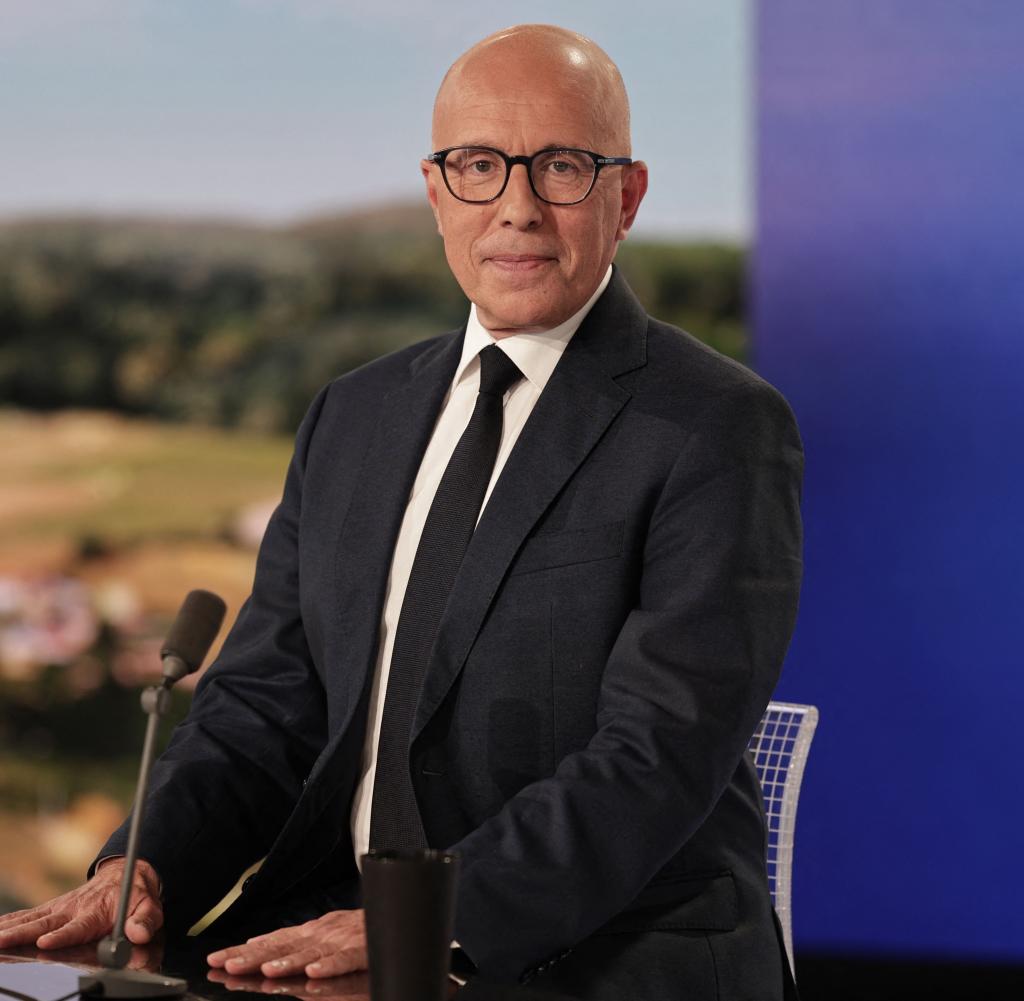After the new elections were called, for the first time a leader of a traditional party in the country has spoken out in favor of an alliance with the right-wing nationalist Rassemblement National (RN). “We need an alliance with the RN and its candidates, but we must remain ourselves,” said the leader of the Republicans, Eric Ciotti, on Tuesday to the television channel TF1.
The Christian Democratic Republicans are part of the EPP party family, which also includes the CDU and CSU. They have represented several former presidents, including Jacques Chirac and Nicolas Sarkozy.
Specifically, Ciotti said that he wanted there to be no RN candidates opposing his party’s MPs in certain constituencies. He admitted that his party, which has been in a downward spiral for years, has no chance on its own against the presidential camp and the left-wing alliance.
President Emmanuel Macron, on the other hand, had wanted to make a pact with the Christian Democrats through his Renaissance party in order to keep the RN in check in the upcoming elections. But Ciotti turned Macron down.
Marine Le Pen, founder of the RN and parliamentary group leader in the National Assembly, spoke of a “courageous decision” and attested to Ciotti’s “sense of responsibility”. The “cordon sanitaire” that has supposedly existed for forty years and has caused us to lose many elections” is now disappearing. The historic term “cordon sanitaire” refers to the decades-long exclusion of government coalitions with the right-wing nationalists – the French version of the firewall.
By opening up to an alliance with the RN, Republican leader Ciotti is taking an unprecedented step. Joining forces with right-wing nationalists or right-wing extremists has been taboo for most parties in France in recent decades.
This has also been true for the Republicans so far: the French conservatives are invoking the tradition of Charles de Gaulle, who led the French resistance against Nazi Germany before becoming president during the Second World War. The RN’s predecessor party, the Front National, was founded in the early 1970s by Jean-Marie Le Pen and Pierre Bousquet, a former member of the Waffen-SS.
Ciotti was criticized accordingly harshly: The Republican leader of the French Senate, Gérard Larcher, said he would “never approve an agreement with the RN”. The leader of the Republican faction in the Senate, Bruno Retailleau, spoke of a purely “personal line” that Ciotti was pursuing on this issue. The party leader must therefore give up his post. And the leader of the conservative faction in the National Assembly, Olivier Marleix, also called for Ciotti’s resignation on X.
Even harsher criticism was expressed by Interior Minister Gérald Darmanin, who was formerly a member of the Republicans and switched to President Macron’s camp in 2017. Ciotti was disgracing the “Gaullist family” with his rapprochement with the RN and had thereby signed “the Munich Agreement”. With the agreement, France and Great Britain allowed Nazi Germany to invade the Sudetenland, which was part of Czechoslovakia, in 1938 – behind the back of the government in Prague.
Ciotti, however, remained undeterred even after his announcement. He will not resign, the conservative party leader told reporters. His mandate is in the hands of the party members. Videos circulated on Twitter showing Ciotti being harassed by students who do not agree with his approach. “You are tarnishing the history of your party,” they shouted. The members are said to be members of a Jewish student association.
The French left is also trying to develop a common strategy with a view to the early parliamentary elections. On Tuesday, representatives of the Socialists, Greens, Communists and the left-wing populist party La France Insoumise (LFI) negotiated who should run as the parties’ top candidate.
On Monday evening, after a meeting of the party leaders, the parties had already declared that they had reached a basic agreement on “joint candidacies from the first round” of the parliamentary elections. However, there are still differences of opinion. The leader of the Socialists, Olivier Faure, had previously called for the formation of a “popular front” against the far-right parties.
France’s left-green parties formed the Nupes alliance under the leadership of LFI leader Jean-Luc Mélenchon for the National Council elections in May 2022. However, the alliance fell apart again in autumn 2023.
President Emmanuel Macron called for new elections to the National Assembly following the RN’s election victory and the crushing defeat of his liberal list in the European elections on Sunday. He set the dates very tight, with the vote to take place on June 30 and July 7. Macron ruled out resigning in the event of a RN victory.
In national parliamentary elections in France, MPs are elected according to a majority voting system with two rounds: if no candidate in a constituency receives an absolute majority in the first round, a second round is held in which the candidate with the most votes wins.





















